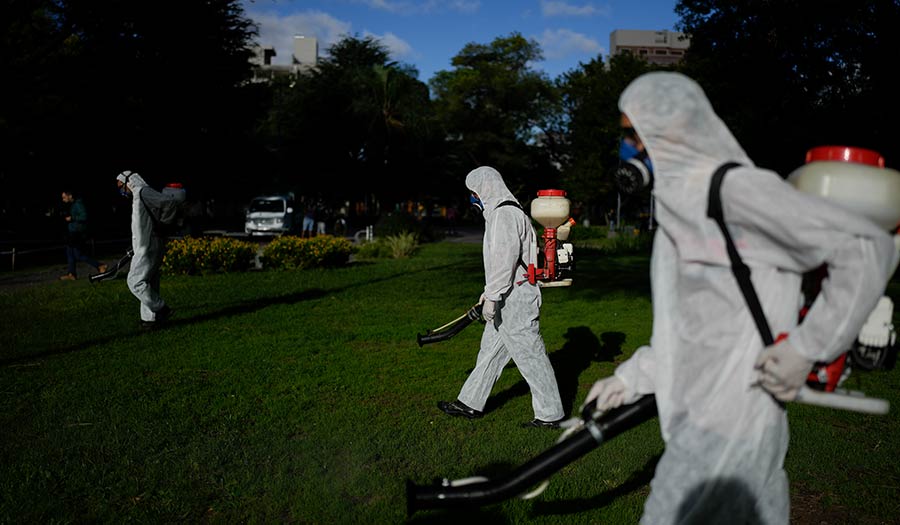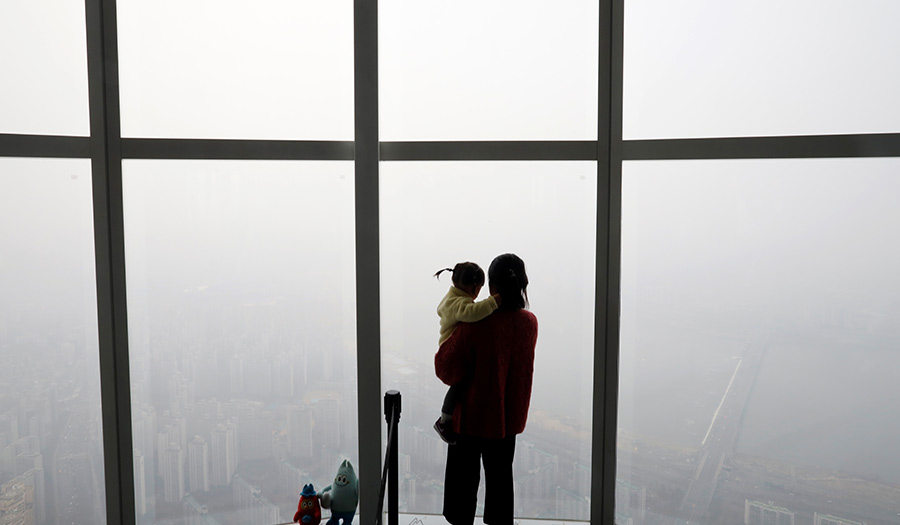 AP/Natacha Pisarenko
AP/Natacha Pisarenko
World News Desk
Learn the why behind the headlines.
Subscribe to the Real Truth for FREE news and analysis.
Subscribe NowSAN JUAN, Puerto Rico (AP) – Dengue is surging across the Americas early this year from Puerto Rico to Brazil, with 3.5 million cases of the tropical disease reported so far, health officials said late last week.
That tally is three times the number of cases reported at this point last year, said Dr. Jarbas Barbosa, director of the Pan American Health Organization, the regional office of the World Health Organization in the Americas.
Last year, there were a record 4.5 million cases in the region, and PAHO officials said they expect this year will set a new record.
Usually dengue spikes during the wet season, which is still months away. And some areas are reporting dengue for the first time, officials said.
The dengue virus is spread to people when they are bitten by infected mosquitoes. Driving the surge are rising temperatures, rapid urbanization, droughts and floods, and poor sanitation and a lack of robust health systems in some countries, health officials said.
The virus can cause crushing headaches, fever, vomiting, a rash and other symptoms. While most infected people do not get symptoms, severe cases can lead to death. There is no specific treatment other than pain medications.
Most of the current cases are in the Southern Hemisphere, with more than 80 percent in Brazil, followed by Paraguay, Argentina, Peru and Colombia. Some 1,000 deaths have been reported in the Americas so far this year.
In the Caribbean alone, more than 25,000 cases have been reported, with French Guiana, Martinique, Guadeloupe, Puerto Rico and the Dominican Republic most affected, said Dr. Rhonda Sealey-Thomas, PAHO’s assistant director.
Last week, Puerto Rico’s health secretary declared an epidemic, with more than 540 cases, with at least 341 people hospitalized. The numbers are concerning because parts of the island are currently under a moderate drought, and the rainiest month is not until August.
The surge in cases forced Rio de Janeiro to declare a public health emergency last month ahead of Carnival. Peru did the same for most of its provinces, and others have followed suit.
There are four different dengue viruses circulating in the Americas, said the PAHO’s Dr. Sylvain Aldighieri. “We have to be prepared for this.”
Some countries have released specially bred mosquitoes that contain a bacteria called Wolbachia that fights dengue.
Last month, Josian Bruno, who lives in the San Juan capital of Puerto Rico, developed a fever and body aches. A lab test confirmed that the 38-year-old had kidney failure because of severe dehydration. He spent six days in the hospital, and the day after being released, his test results came back positive for dengue.
“When they tell you it’s renal failure, that’s scary,” he said.
A month has passed, and Mr. Bruno still has difficulty moving his arms and walking, and he has not been able to resume his thrice-weekly runs.
While a new dengue vaccine is available in limited supply, it requires two doses with a three-month interval. Mr. Barbosa said officials are monitoring how well it actually works. He said a single-shot vaccine will not be available until next year.
- World News Desk
- MARRIAGE & FAMILY
 Global Fertility Rates to Decline, Shifting Population Burden to Low-Income Countries
Global Fertility Rates to Decline, Shifting Population Burden to Low-Income Countries


